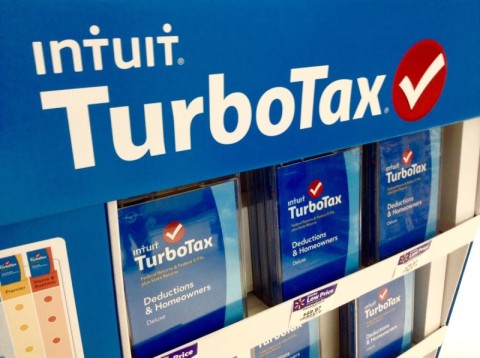
This piece originally appeared in Canadian Dimension.
Every spring, Canadians go through the arduous and often intimidating process of filing their taxes. And every year, roughly 10 percent of Canadians don’t file their taxes at all. Those who don’t file are mostly low-income earners and people who experience various barriers to filing; seniors may have cognitive or technological obstacles, while a single parent of a child with disabilities may simply be spread too thin.
The result is a scenario where much-needed social supports, like the Canada Child Benefit or the pension income tax credit, never reach their intended recipients. It’s estimated that Canadians who are unable to file their taxes miss out on over a billion dollars annually in government benefits.
Our government has been promising to address this problem for some time by introducing automatic tax filing. And for just as long, the tax filing sector has been intent on blocking this progress. It may seem astounding to see a multi-billion-dollar industry advocate so intensely against putting crucial benefits into the hands of Canadians in need, but they’ve been at it for years.
In 2018, the largest tax-filing companies in the country, like H&R Block and TurboTax, came together to form Tax-Filer Empowerment Canada (TFEC), a lobby group that met with the CRA and federal government nearly a dozen times in 2023. Their goal? According to their website, “To maintain independence and confidence in Canada’s tax-filing system by ensuring the roles of tax preparer and tax collector remain separate and distinct.”
This cynical notion that corporations are courageously defending us from the dreaded tax man is a dangerous ideological ruse. Far from the sinister process TFEC would have you believe it is, an automated tax filing system simply uses the information the CRA already collects to file basic returns. This allows various government financial supports to reach people quickly, removing the barrier of filing for those who are unable to.
Contrary to the upside-down narrative presented by TFEC, corporations have a mandate to make a profit; the government has a mandate to serve the people. The tax filing industry is borrowing rhetoric from the anti-tax lobby in an attempt to scare us away from a progressive tax reform that eats into their bottom line. These companies are clinging to their Canadian market share as governments around the world have created better service through an automated system.
In fact, at least two dozen countries worldwide have already made the sensible transition to some form of automatic tax filing, not necessarily just for low-income citizens, but in many cases for everyone. The UK, Japan, Australia, Denmark, Chile, and Portugal have implemented some version of an automated, digital tax system, and none of them have turned back.
In the 2023 federal budget, the Trudeau government announced that the CRA would pilot a new automatic tax filing service in 2024 and present a plan to expand the service further moving forward. With tax season underway, a recent announcement provided an update on their promise. Unfortunately, the news is underwhelming.
The update reveals lamentably slow progress towards making tax filing more accessible to those in need. The current phone service for low-income filers will double its capacity and expand to include digital and paper options, but the watered-down plan reveals that the automatic tax filing pilot is nowhere to be found. Adding to the urgency of ensuring that low-income Canadians are able to file their taxes, the new Canadian Dental Care Plan is only available to those who file.
While submitting taxes can be challenging for anyone, it is particularly inaccessible to those most in need of the supports available through filing. Anti-poverty advocates and social workers have long been calling for automatic tax filing but are invariably under-resourced. This plea is easily drowned out by the booming messaging of high-paid lobbyists. One of the most powerful members of the TFEC, Thomson Reuters, is owned by the richest man in Canada, David Thomson, illustrating the weight of the group’s influence.
In the unfair fight for automatic tax filing, Canadians need to get behind the underdog. While many of us might welcome and benefit from this service, it’s our vulnerable friends and neighbours who need it the most. We must come together to join the chorus calling for this crucial tax reform—and be louder than those motivated by nothing more than greed.
